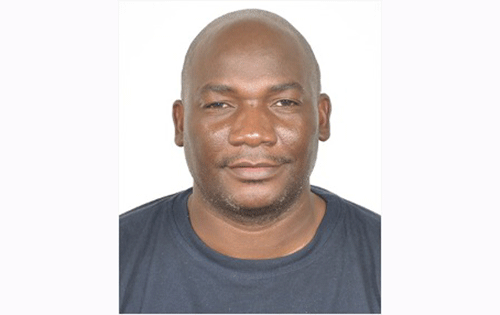Society deeply ingrained many, including me, to believe that those who commit crimes are inherently bad people, forever condemned to lives of wrongdoing with no hope for redemption.
This notion not only generalises the complexities of human behaviour but also perpetuates a justice system focused solely on punishment rather than healing. In reality, to sustained support, we can agree that crime often stems from systemic issues, personal circumstances and moments of poor judgment rather than from an inherent moral failing.
As Namibia’s criminal justice system begins to confront the limitations of its retributive focus, restorative justice offers a compelling and forward-thinking alternative.
In this discourse, I explore the current trends, prospective needs, and critical role of leadership in realising the full potential of restorative justice in Namibia. Arguably, criminal justice, as traditionally practised, has often emphasised punishment over reconciliation, alienating both offenders and victims from the possibility of genuine healing.
The punitive model views crime as an offence against the State, where the primary goal is to punish offenders, often neglecting the emotional and social needs of the victim. In contrast, restorative justice views crime as violating relationships and community bonds.
This paradigm recognises the inherent value of addressing harm in a holistic way, where all parties, including victims, offenders, and the community, are engaged in the process of healing.
Namibia, with its rich cultural traditions of communal problem-solving, is well-positioned to adopt restorative justice practices more broadly. While still in its infancy, there are seeds of restorative justice in Namibian systems, such as mediation practices and informal conflict resolution techniques that align with restorative principles.
I, therefore, argue that with Namibia’s shifting societal dynamics, particularly the increasing focus on human rights, victim-centred approaches, and social cohesion, restorative justice will become a cornerstone of the country’s criminal justice system.
Importantly, leaders within Namibia’s legal and law enforcement sectors must champion this shift to ensure a more compassionate and effective justice system.
In Namibia, while the formal criminal justice system has leaned heavily on traditional punitive approaches, restorative justice has gained some traction, especially in the context of community-based conflict resolution.
Customary law, practised in many Namibian communities, embodies elements of restorative justice by emphasising the restoration of relationships and community harmony. However, within the formal justice system, the use of restorative practices remains limited, often reserved for minor offences or disputes that occur outside the formal court system. As Namibia continues to evolve socio-politically, the rise of issues such as gender-based violence (GBV), increasing youth lawbreaking and economic crimes suggests that the current justice model, focused on incarceration, may not provide sustainable solutions. There is a growing need to consider alternative systems that not only reduce recidivism but also offer victims a platform for healing and empowerment. Restorative justice meets this need by considering the victim’s experience and ensuring that offenders take genuine responsibility for their actions, something punitive systems often fail to achieve.
Every time I have the opportunity to visit the court, I am reminded that the broader criminal justice system continues to be dominated by retributive mechanisms.
Police holding cells across the country and correctional facilities remain overcrowded, and the rehabilitation of offenders is often secondary to their punishment. It is worrying to notice often that victims of crime, particularly those affected by violent offences, are left with minimal involvement in the justice process, resulting in feelings of disempowerment and unresolved trauma.
This little observation compels me to ask, do leaders in criminal justice and law-enforcement recognise that Namibia’s future demands a more victim-centred approach?
With the preceding question, I can now argue that for restorative justice to flourish, Namibia will need to adopt comprehensive policy frameworks that institutionalise restorative practices at all levels of the justice system, including customary practices.
This means, to a larger extent integrating restorative options into criminal proceedings, offering mediation and reconciliation processes as alternatives to sentencing, and ensuring that all stakeholders’ victims, offenders and community members are active participants.
To attain this, law-enforcement personnel, legal practitioners and community leaders must be trained in restorative justice principles. This will require not only formal education on the theoretical underpinnings of restorative justice, but also practical training on how to facilitate restorative dialogues and mediate disputes effectively.
Perhaps, I may again pause and ask, are Namibia’s universities and legal institutions ready to invest in developing skilled professionals in restorative techniques? While restorative justice is often applied to minor offences, its potential to address crimes, such as GBV and violent assaults, should not be underestimated.
Research suggests that restorative justice, when carefully managed, can provide profound healing for victims and can compel offenders to confront the consequences of their actions in ways that punitive systems cannot. In Namibia, where GBV, passion killing and family neglect are pressing concerns, restorative justice could offer an innovative solution that empowers victims, holds offenders accountable and fosters societal healing.
Therefore, restorative justice should not be merely an option for the future, but will be a necessity. Nonetheless, will this predictive discourse be realised?
Only time will tell!
*Dr Kennedy Mabuku holds a doctoral degree in policing, and writes in his personal capacity.



